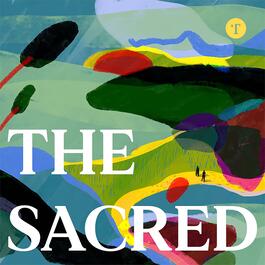
Why a Gay Atheist Still Believes Christianity Matters – with Jonathan Rauch
We sat down with Jonathan Rauch - a gay, Jewish atheist - to explore his remarkable journey from accepting his sexuality and rejecting religion to becoming a key voice advocating for same-sex marriage and the vital role of Christianity in sustaining liberal, secular democracy. Key topics include: - Jonathan's personal wrestle with his sexuality and eventual acceptance - His commitment to gay and lesbian equality and the social conservative case for same-sex marriage - The negative effects of secularisation - The importance of Christian values in supporting liberal democracy and the need for a Christian revival --- 🎙️ Follow The Sacred: linktr.ee/sacredpodcast 📖 Follow Elizabeth Oldfield: www.elizabetholdfield.com/ 💡 Produced by the @thinktanktheos www.theosthinktank.co.uk/ ✍️ Follow Jonathan Rauch: https://x.com/jon_rauch?lang=en Chapters: 00:00 Intro 00:57 What is Sacred to you? Jonathan Rauch answers 02:48 Childhood Influences and Jewish Identity 05:58 Feeling on the outside 06:58 Trying to be religious 08:47 The Fight for Free Speech and Liberalism 11:52 The Journey to Same-Sex Marriage Advocacy 15:06 Navigating Personal and Public Identity 17:57 Understanding Anger and Tolerance in Debate 19:44 Denial and Acceptance of Same-Sex Attraction 34:28 Advocating for Christianity as an Atheist 36:14 The Consequences of Secularisation 38:19 The Role of Christianity in Democracy 40:42 Core Teachings of Christianity and Liberalism 47:21 The Need for Christianity in Secular Society 51:13 The Search for Transcendence 54:34 Messages for Secular Liberals and Christians Keywords: Jonathan Rauch, Liberal democracy, Christianity and politics, Gay rights, Same-sex marriage, Religious freedom, Secular society, American democracy, Political philosophy, Free speech, LGBTQ+ rights, Jewish identity, Atheism, Religious values, Social change, Political discourse, Minority rights, Cultural transformation, Civic engagement, Religious tolerance, Political liberalism, Social conservatism, Identity politics, Democratic values, Religious revival, Intellectual history, Cultural dialogue, Personal identity, Political belief, Social justice, Religious pluralism, American creed, Constitutional values, Community building, Interfaith dialogue, Political moderation, Cultural understanding, Religious institutions, Social cohesion, Intellectual freedom, Political compromise, Religious skepticism, Cultural diversity, Democratic principles, Social transformation, Religious critique, Political philosophy, Civic virtues, Cultural evolution, Intellectual honesty
From "The Sacred"


Comments
Add comment Feedback